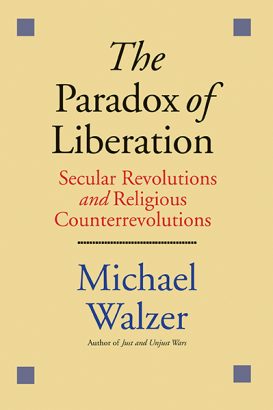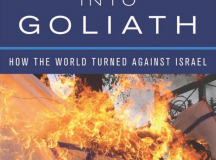What has happened to the secular and democratic left? It would be an exaggeration to say that everywhere it is in retreat, but it is assailed by a resurgent religiosity allowed an increasingly free rein by the torpidity of the secular-minded.
In Britain this phenomenon tends to be exaggerated. Secularism isn’t so much in retreat as lacking in vigour. Those who ought to be its most committed defenders – the Left – have succumbed to a relativism which views superstition and backwardness as ‘appropriate’ for certain communities. Those languishing under the clerical boot are simply following a different – but equally valid – ‘truth’. It’s just their culture.
Yet compared to many other parts of the world the lethargic state of British secularism is slight. This point is driven home, as it were, by Michael Walzer’s new book, The Paradox of Liberation, which assesses the fate of the secular left in three nations: India, Israel and Algeria.
Walzer, long-time editor of Dissent magazine and emeritus professor at the Institute for Advanced Study, finds that, in the aforementioned nations, strongly secular projects have in recent decades given way to belligerent and fundamentalist religion. In each case this has occurred roughly between 20 and 30 years after independence.
Looking back on the writings of 20th century national liberation leaders today, one thing which stands out is their hostility towards religion. Much of this stems from the fact that accommodation to foreign imperial rule commonly took a religious form. The promised comforts of the afterlife were effective (or at least gave the appearance of being effective) at inoculating societies against the demands for improvement in the here and now. Jawaharlal Nehru, the first Prime Minister of India, wasn’t simply being a curmudgeon when he wrote that religion teaches ‘a philosophy of submission … to the prevailing social order and to everything that is.’
A similar dynamic was at work among Israeli Labour Zionists and the leaders of the National Liberation Front (FLN) in Algeria. ‘The assumption that the Jewish religion … was destined to pass from the scene sooner or later, because it contradicted the needs of modern life, was accepted by practically all the Zionist intelligentsia,’ according to the historian Ehud Luz. As with their Indian liberationist comrades, for Zionists, religion encouraged passivity and ‘a slave mentality that was incapable of resistance or self-help,’ as Walzer puts it. In contrast, national liberation was attractive to the liberationists as ‘a secularizing, modernizing, and developmental creed.’
The gulf between the secular ideas of the liberators and strong religious revival several decades later is probably today most stark in Algeria, where the original goal of the liberation movement was a ‘democratic and social Algerian republic and not the restoration of monarchy or of a theocracy’ (the FLN-dominated Souman Platform of 1956). This meant, above all, a highly visible role for women in the FLN; or as Frantz Fanon put it, their ‘entry into history’. The contrast today is a stark one. The bourgeoning influence of fundamentalist Islam quickly stamped on any early emancipatory promise so by 1984 Algeria had passed the Family Code, a new law which made it a legal duty for women to obey their husbands, re-institutionalised polygamy and removed the right of wives to get a divorce unless they gave up claims to alimony.
For Walzer, the ‘paradox’ of secularist movements giving way to resurgent religious fundamentalism can be located in the fact that these particular modernising revolutionaries emerged from the same milieu as their former oppressors. Their aim may have been to end foreign rule, but they were more at ease with foreign culture than with the people they wanted to liberate. Thus Nehru spent eight years at British schools and reportedly told the American ambassador John Kenneth Galbraith that he was the ‘last Englishman to rule in India.’ Typical among the revolutionary cadres, Ben Bella, the first president of Algeria, preferred Lenin, Sartre and Malraux to the tomes of Muhammad. As for the Labour Zionists, they were likely to be Jews who had ‘assimilated into the world of their oppressors and who viewed their own people with a foreign eye,’ as Walzer notes.
There was, in essence, too great a distance between the liberators and the people who had to be liberated; and little interest on the part of the former in bridging the gap.
In a writer less sophisticated than Walzer conclusions like this would invariably lead to hand-wringing about the incompatibility of ‘Western’ secularist enterprises with ‘authentic’ non-Western societies. What the nations in question really require, so that argument would likely go, are movements more in tune with local conditions; perhaps even movements willing to eschew a ‘Western-centric’ opposition to things like the subordination of women.
Walzer rightly gives this short shrift, but he also has little time for a dogmatic Marxism which blames the inability of secularism to put down lasting roots on the unwillingness of independence leaders to give history a violent shove in the manner of a Lenin or an Ataturk. ‘Traditionalist worldviews can’t be negated, abolished or banned; they have to be engaged,’ Walzer writes.
And so the problem is not that independence leaders were insufficiently secular; but nor is it that they failed to pander to the prejudices of local reactionaries. Instead their mistake was to fail to open a dialogue with fellow reformers, whose politics remained steeped in the old traditions.
Walzer does not, as the postmodernists might, call on liberationists to set aside their objections to the tyranny of traditionalist passivity and backwardness. But he does reject any attempt at a complete ‘negation’ of the old order which ignores the appeal of nation-based politics. Proletarian internationalism has rarely appealed to flesh and blood proletarians, and nations are not blank states but entities with ‘particular cultures and histories [which]… produce particular versions of secularism and modernity.’
An open secularism with indigenous characteristics. A genuine secularism – rather than an anaemic and relativist cop-out – nonetheless.





































Comments are closed.